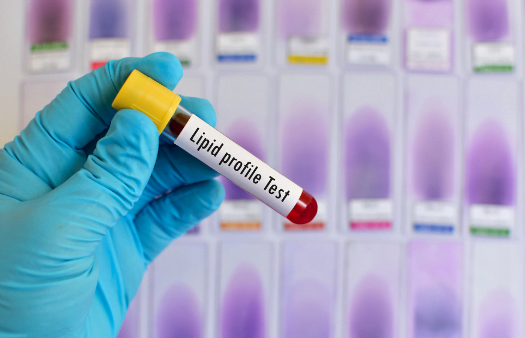Lipid Metabolism Enzyme Activity Testing in Rodents
The study of lipid metabolism is crucial for understanding various physiological processes and pathologies. Lipid metabolism enzymes play a vital role in the breakdown, synthesis, and transport of lipids within the body. In particular, rodents are widely used as model organisms due to their genetic similarity to humans, short lifespans, and ease of manipulation in controlled experimental settings.
Lipid Metabolism Enzyme Activity Testing involves quantifying the activity levels of enzymes involved in lipid metabolism pathways such as cholesterol synthesis (HMG-CoA reductase), fatty acid oxidation (CPT-I), and lipoprotein metabolism. This testing is particularly important for assessing drug efficacy, toxicity, and understanding disease mechanisms.
Our laboratory offers a comprehensive suite of services to support researchers and pharmaceutical companies in their pursuit of knowledge about lipid metabolism. Using advanced analytical techniques, we provide accurate, reproducible results that can be relied upon for regulatory submissions and internal research purposes.
The testing process begins with the selection of appropriate rodent strains based on genetic background and physiological characteristics relevant to the study objectives. Specimens are collected under strict adherence to ethical guidelines and international standards such as GLP (Good Laboratory Practice). Following collection, samples undergo rigorous preparation steps including homogenization and centrifugation to isolate cellular fractions containing the enzymes of interest.
Instrumentation used in our laboratory includes high-performance liquid chromatography (HPLC), enzyme-linked immunosorbent assays (ELISA), and automated spectrophotometric analyzers. These tools enable precise measurement of enzyme activities under controlled conditions, ensuring accurate data collection.
The results generated from these tests are meticulously analyzed to provide detailed insights into the metabolic pathways being studied. Reporting is conducted in accordance with industry best practices, ensuring clarity, completeness, and compliance with relevant standards like ISO 17025 for quality management systems.
By leveraging our expertise in lipid metabolism enzyme activity testing, you can gain valuable information about how your compounds affect these critical biological processes. This knowledge is essential for developing effective treatments for cardiovascular diseases and other conditions associated with dyslipidemia.
Why It Matters
The health of the heart and circulatory system relies heavily on proper lipid metabolism regulation. When this process becomes imbalanced, it can lead to various cardiovascular issues such as atherosclerosis, hypertension, and coronary artery disease. Understanding how different factors influence lipid metabolism is key to developing effective therapeutics.
By conducting thorough testing on rodent models, we help clients identify potential therapeutic targets and validate drug candidates early in the R&D pipeline. This not only accelerates the development process but also reduces costs associated with late-stage failures due to adverse effects or lack of efficacy.
The ability to accurately measure enzyme activities provides a deeper understanding of molecular mechanisms underlying lipid metabolism disorders. This knowledge can guide the design of more targeted therapies that address specific aspects of the disease rather than broad-spectrum approaches which may have unwanted side effects.
Furthermore, by ensuring consistency across multiple experiments through standardized procedures and rigorous quality controls, our services contribute to reliable scientific discoveries that form the foundation for medical advancements. This helps translate laboratory findings into clinically viable solutions faster, ultimately benefiting patients suffering from cardiovascular diseases worldwide.
Industry Applications
- Evaluation of new drugs targeting lipid metabolism pathways
- Assessment of existing medications for off-label indications involving lipid regulation
- Investigation into the role of specific enzymes in metabolic disorders like hypercholesterolemia and hypolipidemia
- Screening for compounds that modulate adipogenesis and lipolysis processes within adipose tissue
The information derived from lipid metabolism enzyme activity tests can have significant implications for both academic research and pharmaceutical industries. It allows researchers to explore novel approaches to treating cardiovascular diseases while ensuring safety profiles meet regulatory requirements.
Use Cases and Application Examples
- Evaluating Statins: Testing the activity of HMG-CoA reductase inhibitors in different rodent models helps determine their effectiveness in lowering cholesterol levels while minimizing side effects. This data is crucial for optimizing dosing regimens and understanding long-term safety profiles.
- Analysing Fibrates: By measuring changes in apolipoprotein A-I activity following treatment with fibrates, researchers can assess the impact of these drugs on HDL cholesterol synthesis and reverse cholesterol transport. This information aids in refining clinical trial protocols for cardiovascular drug candidates.
- Investigating Omega-3 Fatty Acid Supplements: Evaluating enzyme activities related to omega-3 fatty acid metabolism provides insight into their potential benefits in preventing or treating cardiovascular conditions like arrhythmias and heart failure.
The data obtained from these tests informs decisions regarding formulation, dosing schedules, and overall safety profiles of various therapeutic agents. It also supports the development of personalized medicine strategies aimed at tailoring treatments based on individual patient characteristics.





